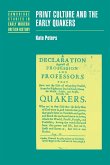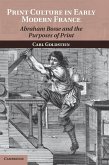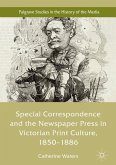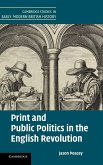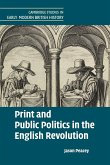Short description/annotation
Studies the early Quaker use of printed tracts, how they were produced and used.
Main description
The early Quaker movement was remarkable for its prolific use of the printing press. Carefully orchestrated by a handful of men and women who were the movement's leaders, printed tracts were an integral feature of the rapid spread of Quaker ideas in the 1650s. Drawing on very rich documentary evidence, this book examines how and why Quakers were able to make such effective use of print. As a crucial element in an extensive proselytising campaign, printed tracts enabled the emergence of the Quaker movement as a uniform, national phenomenon. The book explores the impressive organisation underpinning Quaker pamphleteering and argues that the early movement should not be dismissed as a disillusioned spiritual remnant of the English Revolution, but was rather a purposeful campaign which sought, and achieved, effective dialogue with both the body politic and society at large.
Table of contents:
Introduction; 1. Writing and authority in the early Quaker movement; 2. The production and readership of Quaker pamphlets; 3. A national movement: pamphleteering in East Anglia; 4. 'The Quakers Quaking': the printed identity of the movement; 5. 'Women's speaking justified': women and pamphleteering; 6. Pamphleteering and religious debate; 7. Print and political participation; 8. The James Nayler crisis, 1656; Bibliography of secondary sources.
Hinweis: Dieser Artikel kann nur an eine deutsche Lieferadresse ausgeliefert werden.
Studies the early Quaker use of printed tracts, how they were produced and used.
Main description
The early Quaker movement was remarkable for its prolific use of the printing press. Carefully orchestrated by a handful of men and women who were the movement's leaders, printed tracts were an integral feature of the rapid spread of Quaker ideas in the 1650s. Drawing on very rich documentary evidence, this book examines how and why Quakers were able to make such effective use of print. As a crucial element in an extensive proselytising campaign, printed tracts enabled the emergence of the Quaker movement as a uniform, national phenomenon. The book explores the impressive organisation underpinning Quaker pamphleteering and argues that the early movement should not be dismissed as a disillusioned spiritual remnant of the English Revolution, but was rather a purposeful campaign which sought, and achieved, effective dialogue with both the body politic and society at large.
Table of contents:
Introduction; 1. Writing and authority in the early Quaker movement; 2. The production and readership of Quaker pamphlets; 3. A national movement: pamphleteering in East Anglia; 4. 'The Quakers Quaking': the printed identity of the movement; 5. 'Women's speaking justified': women and pamphleteering; 6. Pamphleteering and religious debate; 7. Print and political participation; 8. The James Nayler crisis, 1656; Bibliography of secondary sources.
Hinweis: Dieser Artikel kann nur an eine deutsche Lieferadresse ausgeliefert werden.


